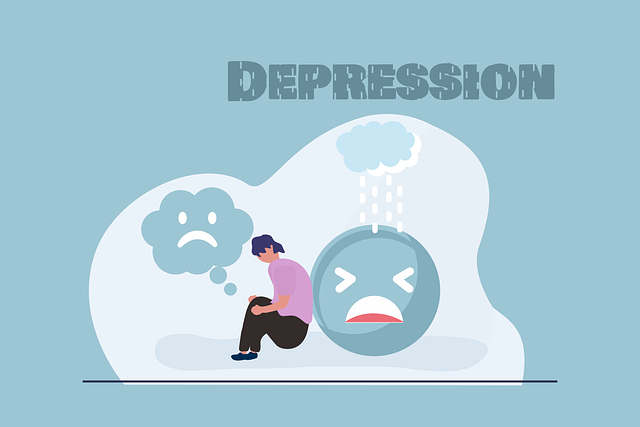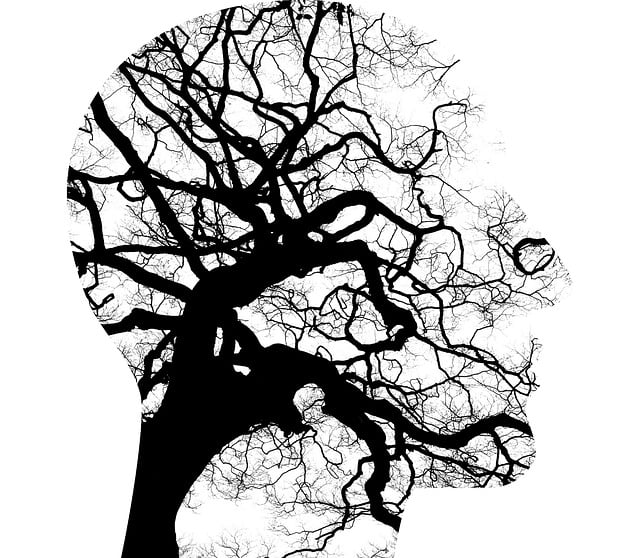Arvada Abuse Survivors Therapy focuses on empowering individuals through mood regulation skills, particularly using Cognitive Behavioral Techniques (CBT) and mindfulness practices for emotional management. Creative outlets like art therapy provide a safe space for expression and healing, while building supportive networks offers additional emotional support and enhances social skills. These integrated approaches aim to reduce negative feelings, break abusive cycles, and promote well-being, ultimately fostering resilience and a fulfilling life.
Mood regulation strategies are essential tools for Arvada abuse survivors seeking emotional healing and recovery. This comprehensive guide explores various techniques designed to help individuals manage and stabilize their moods effectively. From cognitive-behavioral therapies that target negative thought patterns to mindfulness practices and creative outlets, each section offers powerful insights into fostering emotional well-being. Discover how building a supportive network can further enhance the therapeutic journey for Arvada abuse survivors through social connections tailored to their unique needs.
- Understanding Mood Regulation and its Significance for Arvada Abuse Survivors
- Cognitive-Behavioral Techniques for Managing Emotional States
- The Role of Mindfulness and Meditation in Mood Stabilization
- Exploring Creative Outlets as Therapeutic Mood Regulators
- Building a Supportive Network: Social Connections for Emotional Wellbeing
Understanding Mood Regulation and its Significance for Arvada Abuse Survivors

Understanding Mood Regulation and its Significance for Arvada Abuse Survivors
Mood regulation is a crucial skill to develop for anyone, but especially for Arvada abuse survivors. It involves managing and controlling emotional responses, which can be particularly challenging after traumatic experiences. In therapy, coping skills development becomes a cornerstone of recovery, empowering individuals to navigate their emotions in healthy ways. By learning effective mood regulation strategies, Arvada abuse survivors can reduce the intensity of negative feelings, prevent potential triggers, and foster a sense of stability and well-being.
This process is integral to breaking free from cycles of abuse and its associated mental illness stigma reduction efforts. Through therapy, survivors gain insights into their emotional triggers, learn conflict resolution techniques, and develop personalized coping mechanisms tailored to their unique experiences. These strategies not only help individuals manage their emotions in the present but also equip them with valuable tools to cope with future challenges, paving the way for a healthier and more fulfilling life.
Cognitive-Behavioral Techniques for Managing Emotional States

Cognitive-Behavioral Techniques (CBT) offer powerful tools for managing emotional states and have proven particularly effective for Arvada Abuse Survivors Therapy. By identifying and challenging negative thought patterns, CBT enables individuals to gain a deeper understanding of their emotions and how they influence behavior. This process involves learning to recognize triggers, distorting beliefs, and unhelpful behaviors, which can significantly reduce symptoms of anxiety and depression.
One key aspect is the development of a self-care routine focused on enhancing mental health. Encouraging regular exercise, adequate sleep, and mindfulness practices, alongside fostering social connections and engaging in enjoyable activities, can boost confidence and resilience. This holistic approach to well-being integrates various strategies to create a robust framework for emotional regulation, catering to individuals’ unique needs and promoting long-term mental health awareness.
The Role of Mindfulness and Meditation in Mood Stabilization

Mindfulness and meditation have emerged as powerful tools in mood regulation, especially for individuals who have experienced trauma or are recovering from abuse. These practices encourage a focus on the present moment, fostering a sense of calm and emotional balance. For Arvada Abuse Survivors Therapy clients, mindfulness serves as a healing mechanism, helping them detach from negative thought patterns and reducing the impact of traumatic memories. By cultivating awareness without judgment, individuals can develop a healthier relationship with their emotions, leading to improved mood stabilization.
Cultural sensitivity in mental healthcare practice plays a crucial role in integrating these strategies. Therapists skilled in risk assessment for mental health professionals can tailor mindfulness techniques to respect diverse cultural backgrounds and beliefs. Incorporating stress reduction methods alongside traditional therapy can create a safe and supportive environment, enabling clients to explore their emotions and engage in effective self-care practices.
Exploring Creative Outlets as Therapeutic Mood Regulators

Exploring creative outlets can serve as powerful therapeutic mood regulators for individuals, especially those who have experienced Arvada abuse survivors therapy. Engaging in artistic activities like painting, writing, or music provides a unique form of expression and release. Through these mediums, people can externalize their emotions, which is particularly beneficial for processing traumatic experiences and managing intense feelings. This process allows for the development of coping skills as individuals learn to channel their emotions into something tangible.
Art therapy, for instance, offers a safe space for self-exploration and emotional healing. It encourages the expression of inner thoughts and experiences that might be difficult to articulate verbally. By participating in creative pursuits, survivors can enhance their mood management abilities and gain a sense of control over their emotional well-being. Moreover, engaging in these outlets can foster social skills training, as sharing artistic creations can facilitate connection and understanding within supportive communities.
Building a Supportive Network: Social Connections for Emotional Wellbeing

Building a supportive network is a vital component of mood regulation strategies, especially for individuals who have experienced Arvada abuse survivors therapy. Strong social connections can act as a buffer against emotional distress and promote overall emotional wellbeing. This involves cultivating meaningful relationships with friends, family, or support groups who can provide comfort, understanding, and encouragement during challenging times. In the context of cultural sensitivity in mental healthcare practice, it’s important that these connections are formed within a safe and inclusive environment where diverse perspectives are respected.
Mental health education programs design plays a crucial role in empowering individuals to recognize and build upon their social support systems. By teaching skills like effective communication, conflict resolution, and assertiveness, these programs can boost confidence and facilitate healthier interactions. This, in turn, strengthens the emotional resilience of individuals, making them better equipped to navigate life’s ups and downs without relying heavily on mood-altering substances or unhealthy coping mechanisms.
For Arvada abuse survivors, effective mood regulation strategies are essential tools in their therapeutic journey. By combining cognitive-behavioral techniques with mindfulness practices, creative outlets, and supportive social networks, individuals can gain a deeper understanding of their emotional states and develop healthy coping mechanisms. These integrated approaches empower survivors to navigate their emotions, foster resilience, and enhance overall well-being on their path to recovery and healing. Arvada abuse survivors therapy benefits greatly from these holistic strategies, offering a comprehensive framework for long-term emotional stability and growth.














